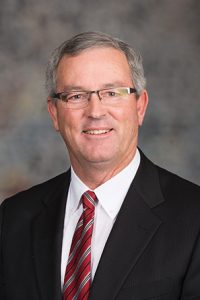Cap proposed on game and parks property
The state Game and Parks Commission could not increase the amount of property it owns under a proposal heard by the Natural Resources Committee Jan. 30.
Under current law, the commission may acquire title to land outside organized municipalities for additional state parks, hatcheries, recreation grounds, recreational trails, wildlife management areas, captive wildlife facilities and public shooting grounds.
LB863, introduced by Sen. Dan Hughes of Venango, would bar the commission from any purchase or acquisition of additional sites if doing so would increase the amount of property it owns as of Sept. 1, 2020.
During two interim committee hearings last fall, Hughes said, many people shared concerns about maintenance at commission sites across the state.
“Many were concerned with the obvious lack of maintenance and upkeep on Game and Parks properties, evidenced by weeds not being mowed, buildings [and] structures in disrepair and fences not being maintained,” he said.
Hughes said he brought the bill in part to discover why maintenance seems to have fallen off in the last five to 10 years.
“If there are additional resources that need to be acquired,” he said, “let’s find out, and let’s make sure that we have sufficient resources in place to manage what we have now before we continue to add more acres and more sites.”
John Ross testified in support of LB863 on his own behalf. Ross, a hunter education instructor for the commission, said he has long heard complaints about Lake McConaughy and added that people do not visit Dead Timber State Recreation Area, located near his home, because it has been a “disaster area” for years. He said the commission should ensure their properties are “up to snuff” before they acquire more.
“Most of what Game and Parks does is good,” Ross said, “but we need to improve things.”
Timothy McCoy, the commission’s deputy director, testified in opposition. He said the commission adopted a plan in 2018 that sets out criteria it uses when determining whether it should buy a property that has been offered for sale.
As part of that process, McCoy said, staff examine the site and estimate what additional resources the commission might need to manage it.
Other than a few places that are shorthanded, he said, the commission currently has enough staff to oversee its sites, although it has “some more prioritization to do.”
McCoy said the commission does not have a formal park inspection system or complaint system and that park superintendents are responsible for maintenance and responding to neighboring landowners’ concerns. Some complaints arise when the commission decides to change how it manages a certain area, he said.
“The communication about those changes in management is really important,” McCoy said, “and I’m not sure we’ve always done the best job of sharing that information and helping people understand why.”
John Denton, manager of conservation programs for Nebraska for Ducks Unlimited, also testified in opposition. He said Ducks Unlimited partners with the commission to conserve wetlands within wildlife management areas. As the group seeks to interest young Nebraskans in outdoor activities, Denton said, it wants to ensure access to such public land.
Denton, who said he managed a WMA as a former Georgia state employee, said maintenance is “kind of an eye of the beholder situation.”
“As a state agency, we were expected to manage for multiple user groups, multiple species, and often times those things contradict,” he said.
Jim Johnson testified in opposition to LB863 on behalf of the Nebraska Wildlife Federation. He said the commission’s ability to acquire land in collaboration with conservation groups is an important tool to stave off development for the purpose of protecting wildlife habitat.
If maintenance of state land is a problem, he said, communication between commission staff and landowners would be a better solution than prohibiting the commission from buying more land.
“The ability for [the commission] to help preserve and protect Nebraska’s wildlife habitat is absolutely necessary,” Johnson said, “and they can’t do that without the ability to acquire land when necessary.
The committee took no immediate action on the bill.

